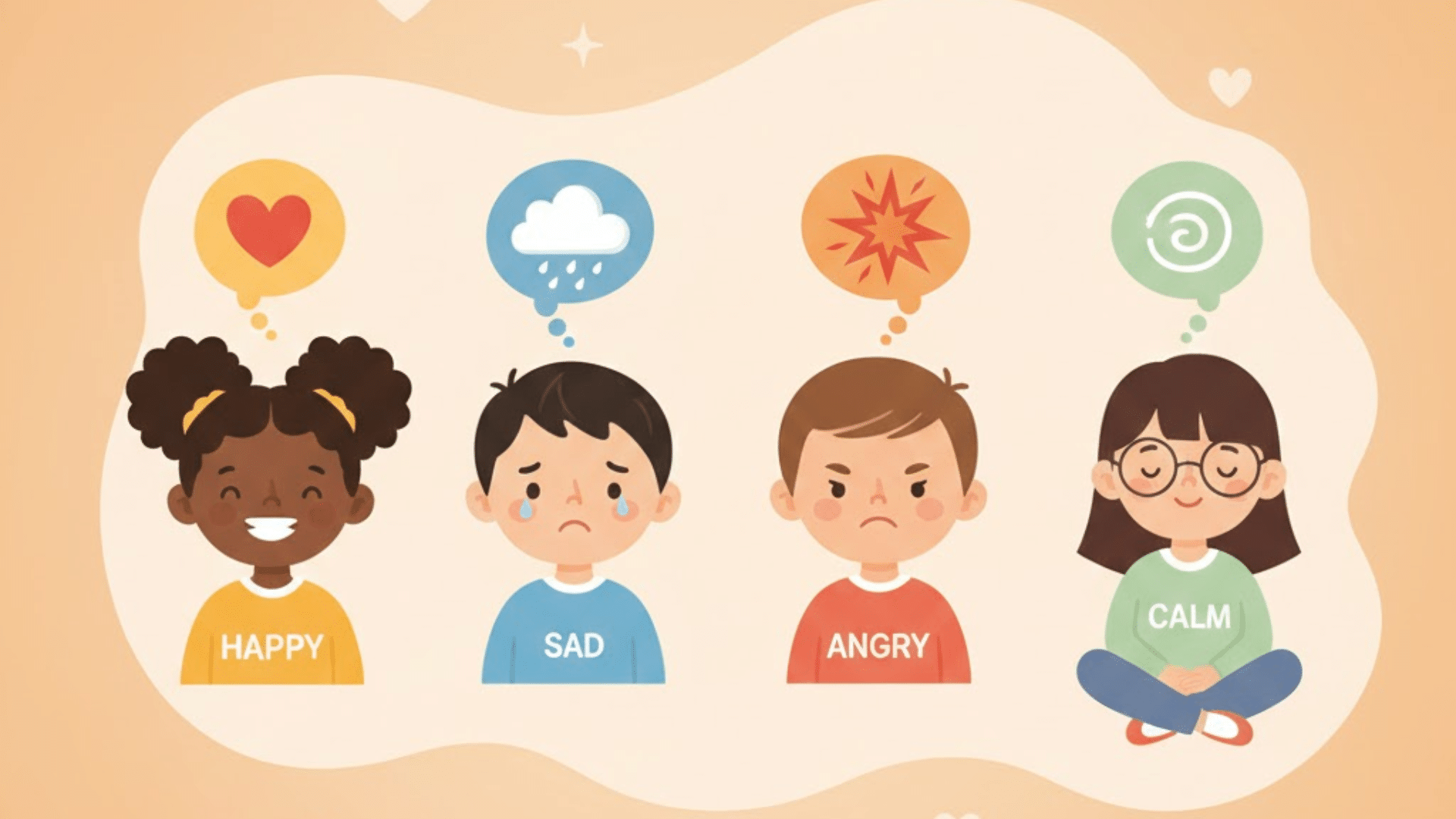Are you looking for honest and practical advice for new moms? Becoming a parent brings joy, but it also comes with sleepless nights, constant changes, and more questions than answers. It’s normal to feel unsure in the beginning.
In this blog, I’ll share straightforward tips every new mother should know to make the early days a little easier.
From caring for yourself to bonding with your baby and finding support, you’ll find advice you can trust and actually use. Remember, even small steps can make a big difference.
Honest, Helpful, and Funny Advice for New Moms
Becoming a new mom is exciting, but it can also feel overwhelming at times. These practical and funny advice for new parents will help you handle the early days with more confidence and ease.
1. Trust Your Instincts as a New Mom
As a new mom, you’ll hear advice from family, friends, and even strangers. Some of it will help, but some may not fit your situation.
Your intuition is powerful because you spend the most time with your baby. You notice their cries, movements, and little changes that others might miss.
2. Sleep When You Can, Not Just When the Baby Sleeps
You’ll often hear the advice “sleep when the baby sleeps,” but it doesn’t always work. Sometimes chores, visitors, or your own restlessness get in the way.
Instead, grab short naps when you can, even if it’s just 20 minutes. Ask your partner to take turns at night so both of you get some rest.
3. Keep Meals Simple but Nourishing
Eating well after birth helps your body recover and keeps your energy steady. You don’t need complicated meals to stay healthy.
Quick options like smoothies, oatmeal, soups, or sandwiches can do the job. Batch cooking on weekends or using meal delivery services can also make life easier.
4. Stay Hydrated Throughout the Day
Drinking enough water keeps your energy up, helps your body heal, and supports milk supply if you’re breastfeeding. It’s one of the simplest but most important habits.
Keep a water bottle by your bed or feeding chair so you can sip often. If plain water feels boring, try adding lemon, cucumber, or switch to mild teas.
5. Learn the Signs of Baby Blues vs. Postpartum Depression
It’s normal to feel emotional after birth. The baby blues are common, short-term mood swings that usually fade within two weeks.
Postpartum depression lasts longer and feels heavier. Signs include constant sadness, loss of interest, trouble bonding, or feeling hopeless.
6. Skin-to-Skin Contact Builds a Strong Bond
Holding your baby against your bare chest helps them feel safe and calm. It can regulate their body temperature, steady their breathing, and deepen your connection with them.
You can practice skin-to-skin during feedings, after baths, or when your baby naps. Partners can also do it, giving them a special way to bond too.
7. Talk, Sing, and Respond to Your Baby’s Cues
Your baby learns from your voice even before they understand words. Talking, singing, and responding to their sounds helps with brain development and bonding.
Try cooing back when they babble, singing gentle songs, or narrating simple routines like changing or feeding. Babies thrive on hearing familiar voices, which makes them feel secure and loved.
8. Accept Help From Family and Friends Without Guilt
Many new moms feel guilty asking for or accepting help, but support makes a big difference. Loved ones often want to pitch in; they just need to know how.
Let them cook a meal, fold laundry, or run errands while you rest or spend time with your baby. Accepting help isn’t a weakness; it gives you more space to recover and bond.
9. Share Responsibilities With Your Partner
Parenting works best when both of you share the load. From baby care to nighttime duties, teamwork keeps stress lower and helps you feel supported.
Talk openly about what each of you needs, and adjust as you go. Both parents are learning together, and that’s perfectly normal.
10. Don’t Compare Yourself to Other Moms (Especially Online)
Social media often shows the best moments, not the hard ones. It’s easy to feel like you’re falling behind when you scroll through perfect posts.
But every baby and every mom is different. What works for one family may not work for yours, and that’s okay. Focus on your baby’s needs and your own rhythm instead of comparing.
11. Safe Sleep Practices Are Non-Negotiable
Your baby’s sleep space should always be safe and simple. Place them on their back in a crib or bassinet with no blankets, pillows, or stuffed animals.
Room-sharing is encouraged, but bed-sharing increases risks and should be avoided if you’re following safety guidelines. Staying consistent with these habits protects your baby and gives you peace of mind.
12. Manage Household Tasks With Realistic Expectations
Housework often slips in the newborn stage, and that’s completely okay. A spotless home isn’t the goal right now; caring for yourself and your baby is.
Use shortcuts like paper plates, frozen meals, or simple dinners. Delegate chores when you can, and remind yourself that dust and laundry can wait. What matters most is your well-being and your little one’s care.
13. Find a Support Network of Moms Who Understand
Connecting with other moms can make the early days feel less lonely. Local parenting groups or online communities give you a space to share stories, struggles, and tips.
Hearing from moms going through the same stage brings comfort and reassurance. Sometimes, just knowing someone else feels the same can lighten the load. Support makes motherhood easier to handle.
14. Remember That Every Baby Develops Differently
It’s easy to worry about milestones, but every baby grows at their own pace. Some crawl, walk, or talk earlier, while others take more time.
These variations are completely normal and don’t mean anything is wrong. Instead of stressing over timelines, focus on your baby’s steady progress. Celebrate their growth, no matter how fast or slow it seems.
15. Give Yourself Permission to Make Mistakes
No parent gets everything right, and that’s completely normal. Mistakes are part of learning and don’t make you a bad mom.
Your baby might cry longer than you hoped, naps may be missed, or feeding could feel tricky. These challenges happen to everyone. Be kind to yourself and see each moment as practice.
16. Remind Yourself That It Gets Easier With Time
The first weeks can feel overwhelming, with little sleep and constant change. But every mom will tell you it doesn’t stay this hard forever.
As routines form and your confidence grows, daily life becomes smoother. Each phase passes and brings new joys, making the challenges feel lighter with time.
17. Take Care of Your Postpartum Recovery
Your body needs time to heal after birth. Soreness, bleeding, and fatigue are all normal parts of recovery.
Rest when you can, eat well, and don’t push yourself too fast. If pain feels unusual or you’re worried, call your doctor. Taking care of yourself helps you care for your baby.
18. Keep Up With Checkups for You and Baby
Doctor visits in the first weeks are important for both of you. Your baby will have regular checkups, and you’ll also need a postpartum appointment.
These visits are a chance to ask questions, check healing, and make sure things are on track. Don’t skip them, they’re part of staying healthy.
19. Feeding Takes Patience, in Any Form
Feeding a newborn isn’t always smooth, whether it’s breastfeeding, formula, or a mix of both. It takes time for you and your baby to find a rhythm.
Don’t feel guilty about how you choose to feed. What matters most is that your baby is nourished and you feel supported in the process.
20. Unfollow Accounts That Drain You
Social media can quickly become overwhelming when you’re constantly comparing yourself. Curate your space so it feels supportive, not stressful. The accounts you follow should leave you feeling encouraged, not defeated.
When you limit negative voices, you create more mental space for what matters. Surround yourself with voices that normalize the ups and downs of motherhood. The right community can help you feel less isolated.
21. Google Less, Trust Yourself More
It’s tempting to look up every little cry or symptom, but too much information often creates confusion. Learn to rely on your instincts and your baby’s cues instead. Your lived experience will guide you more reliably than endless searches.
Instead of googling, write down your questions for your pediatrician or a trusted professional. This helps you avoid spirals while still getting answers.
22. It’s Okay To Take Medication If You Need It
Your mental health is just as important as your baby’s well-being. Talk openly with your doctor about safe options if you’re struggling. Getting the right support can help you show up as a stronger, calmer mom.
Medication doesn’t mean you’re weak; it means you’re caring for yourself. Many safe options exist for postpartum needs, from anxiety to depression.
23. You Don’t Have To Sleep Train
There’s no single right way for babies to learn healthy sleep habits. Some families choose sleep training, while others find their own rhythm naturally. Do what feels aligned with your values instead of forcing a method that doesn’t sit right.
Your baby is unique, and what works for one family may not work for another. Sleep is developmental, and many babies improve on their own over time.
24. Go To Therapy Early
You don’t have to wait until you’re overwhelmed to seek support. Therapy can help you process changes, manage stress, and feel less alone. Taking this step early is an act of care, not weakness.
Counseling gives you tools to handle challenges before they feel unbearable. Even a few sessions can shift how you cope with day-to-day struggles.
25. Find Lactation Support Early
Breastfeeding can be surprisingly difficult, even with preparation. A lactation consultant can troubleshoot challenges and give you confidence in your feeding journey. Knowing where to find support before problems arise can save a lot of stress.
Don’t wait until you’re exhausted or frustrated; book a session in advance if you can. Simple adjustments often make a big difference. Having a support system in place prevents unnecessary guilt or pressure.
26. It’s Okay To Rock, Cuddle, Or Nurse Your Baby To Sleep
Comforting your baby is never the wrong choice. These moments strengthen your bond and give your child a sense of security. Don’t worry about “bad habits”; connection matters most.
Every baby needs comfort, and meeting that need helps them feel safe in the world. Rest assured that habits change as babies grow. Trust that your love now builds long-term confidence and security.
27. Your Relationship May Feel Strained, And That’s Normal
The shift into parenthood impacts routines, intimacy, and communication. This doesn’t mean your relationship is broken; it just means it’s adapting. Honest conversations and patience go a long way in rebuilding closeness.
It helps to carve out small moments for connection, even if it’s just talking for 10 minutes a day. Remember you’re both learning new roles, and that takes time.
Common Myths About Motherhood

Motherhood comes with plenty of advice, but not all of it reflects real life. Knowing the truth behind common myths can help you feel more confident and less pressured in the early days.
- Sleep when the baby sleeps: It sounds simple, but it’s not always possible with chores, meals, or other kids around. Short naps or sharing duties often work better.
- Enjoy every moment: Not every moment feels magical, and that’s okay. Motherhood is beautiful, but it’s also tiring and messy. That doesn’t make you love your baby any less.
- Good moms don’t need help: Every mom needs support. Letting others help gives you more time to rest and connect with your baby.
- Breastfeeding comes naturally: It often takes patience, practice, and sometimes professional guidance. Struggling doesn’t mean you’re doing anything wrong.
Learning to question these myths takes the pressure off and reminds you that being a good mom isn’t about perfection; it’s about showing up with love and patience each day.
Quick Checklist for New Moms
Becoming a new mom comes with plenty to juggle every day. This simple checklist highlights the basics to keep both you and your baby healthy and supported:
| Reminder | Why It Matters |
|---|---|
| Rest When Possible | Short naps or quiet breaks help your body heal and keep your energy steady. |
| Stay Hydrated | Drinking water supports recovery, boosts energy, and helps milk supply if you’re breastfeeding. |
| Safe Sleep | Always place your baby on their back in a clear crib or bassinet for safer sleep. |
| Nourishing Meals | Simple, balanced meals help rebuild strength and keep you feeling your best. |
| Accept Help | Let loved ones assist with chores or meals; it lightens your load and gives you more bonding time. |
Taking care of yourself is just as important as caring for your baby. Small, consistent habits like these make each day smoother and more manageable.
How Partners Can Support New Moms
Partners make a big difference in helping new moms adjust to life with a baby. Small, thoughtful actions can ease stress, strengthen connections, and help both parents feel more balanced.
- Share night duties: Take turns with feedings, diaper changes, or soothing so mom can get genuine rest.
- Offer emotional support: Listen without judgment, check in often, and remind her she’s not alone in this.
- Bond with the baby: Spend time holding, rocking, or doing skin-to-skin to build your own connection while giving mom a breather.
- Handle daily tasks: Take on chores like cooking, laundry, or errands to give her time to heal and recover.
- Encourage breaks: Remind her it’s okay to rest, shower, or step outside while you care for the baby.
When partners share the load with patience and care, it creates a stronger bond, not just with the baby but also between both parents.
Conclusion
Motherhood changes everything, from your routines to how you see yourself. The truth is, there’s no perfect way to do it; only the way that works best for you and your baby.
Every mom learns through small wins, funny moments, and even mistakes that teach patience and strength.
With time, confidence grows, and the chaos starts to feel more natural. Keep showing up with love, grace, and trust in yourself.
If you enjoyed these honest and practical advice for new moms, read more of my parenting blogs for real guidance, encouragement, and tips to make every stage of motherhood a little easier.










